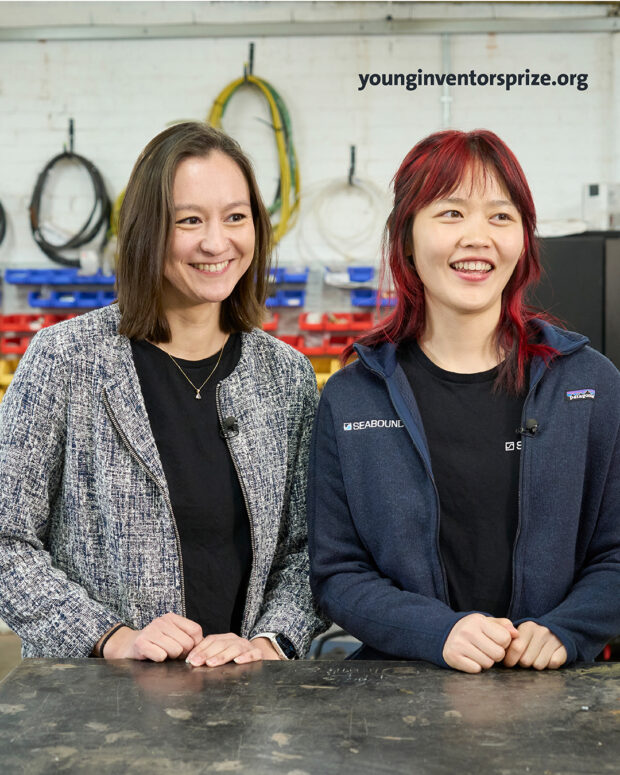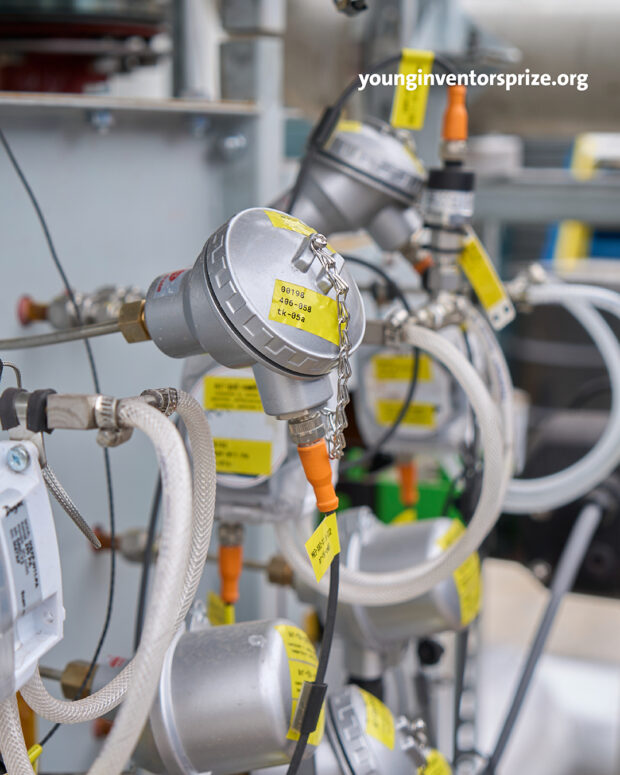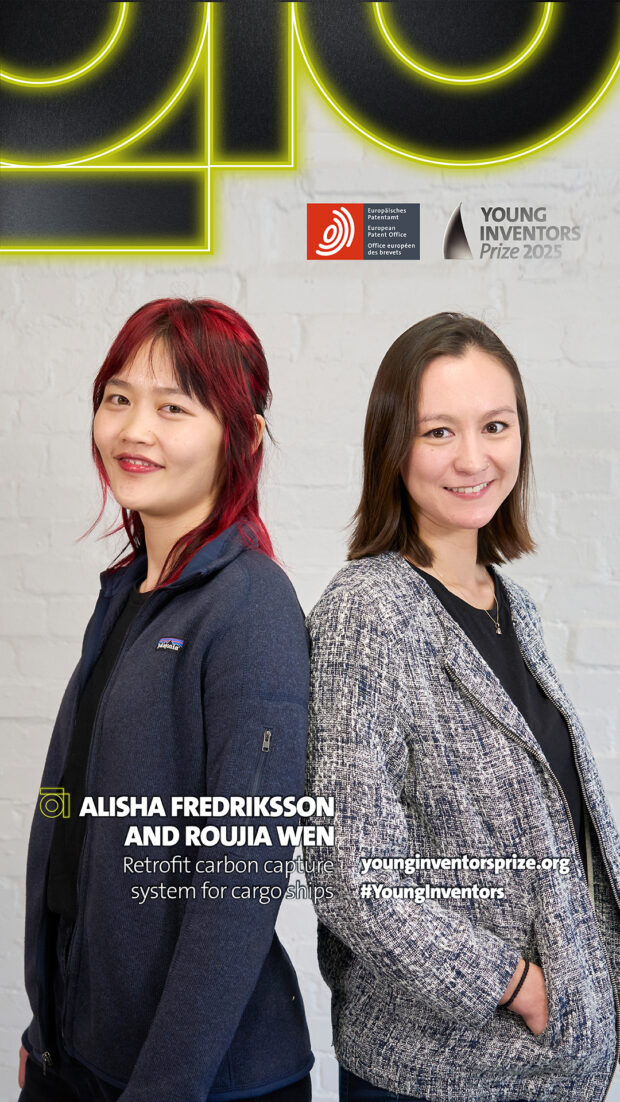Innovation in the climate tech space continues to accelerate as businesses seek solutions to our most pressing environmental challenges. Today we're highlighting Seabound, a UK-based start-up that's making waves with their pioneering carbon capture technology for ships: their innovative work has been recognised by the European Patent Office (EPO) as one of ten 'Tomorrow Shapers' in the global 2025 Young Inventors Prize competition.
We spoke with co-founder Roujia Wen about the technology involved and how intellectual property (IP) protection has become a cornerstone of the Seabound team’s business strategy.

Where it all began
Seabound began in 2021, started by Roujia and her co-founder Alisha Fredriksson. The pair met while studying at Minerva University. The concept for Seabound emerged from Alisha's experience working at a maritime e-fuel startup, which produced methanol for ships as an alternative energy source. Ironically the team couldn't get enough carbon dioxide to make the synthetic fuel in the first place, which sparked the innovative idea of capturing carbon dioxide directly from ships and feeding it back into the production process. This is done by calcium looping – a method that takes calcium-based materials to bind the carbon dioxide so that it can be safely transported back to shore. This pure carbon dioxide can then be sold on to companies making chemicals or e-fuels.
Revolutionary technology for maritime carbon capture
Seabound's technology addresses a significant environmental challenge in the shipping industry. The carbon capture equipment attaches to ships' exhaust systems, effectively capturing carbon dioxide emissions before they enter the atmosphere. Roujia tells us more:
"We use gas analysers to detect the carbon dioxide concentration from exhaust gas. We compare the concentration before the gas runs through our device versus after, and that's how we determine how much we've captured."
This captured carbon is then transformed into a valuable resource and can be sold to companies manufacturing chemicals or e-fuels, creating a circular solution for what would otherwise be harmful emissions.

Intellectual property: building a foundation for growth
A cornerstone of Seabound's business strategy is its IP protection. The company's technology is patent pending, and Roujia sees obtaining a patent as essential for a business.
"Having a patent means that we've got protection over the time, energy, and resources that our team has put into developing this technology," she explained. "It also gives us credibility when we're working with partners, investors, and customers."
For Seabound, patents aren't seen as just legal protection. Roujia feels that they're a strategic business asset that help to demonstrate the company's commitment and innovation capabilities. Part of the team’s success is credited to an investor who helped them think ahead. Roujia states that they were recommended to start creating a roadmap for their IP strategy in the early stages of their business, which enabled them to consider the role it could play from the beginning.
A strategic patent approach
When developing new innovations, consider which elements are truly original and warrant protection. A strategic patent approach can:
- Shield your hard work from competitors
- Demonstrate that you're serious about your technology
- Boost credibility with partners and investors
- Support fundraising efforts
- Showcase your innovation's defensibility.
Think carefully about how patent protection aligns with your business goals and technology roadmap to maximise your competitive advantage.
Looking ahead: from pilot to commercial scale
The Seabound team has already piloted their technology and are now preparing for significant expansion. "We're preparing for a large-scale commercial demonstration with a leading industrial partner that will be announced in a few weeks." Roujia tells me with excitement.
This demonstration, planned for later this year, represents a critical milestone in Seabound's growth journey. The team continue to be hard at work engaging with potential customers, gathering feedback on their system, and securing pre-orders while preparing for manufacturing scale-up.
Ship-shape advice
When asked what advice she would give to other businesses pursuing similar innovations, particularly regarding IP protection, Roujia emphasised the importance of early strategic planning:
"Think about which part of your technology is original and where it's good to have protection. Consider how that serves your overarching business goal and how it interacts with your technology development roadmap."
Supporting climate innovation
Seabound exemplifies how innovative thinking, coupled with strategic IP protection, can address critical environmental challenges while building a sustainable business. The team’s approach to capturing ship emissions doesn't just reduce carbon - it transforms it into a valuable resource, creating environmental and economic benefits simultaneously.

Recognised as EPO Tomorrow Shapers: a platform for future growth
Seabound's innovative approach to maritime carbon capture has earned the team a place among the European Patent Office's 2025 ‘Tomorrow Shapers’ prize for young inventors. This prestigious recognition celebrates innovators under 30 whose work contributes to the United Nations Sustainable Development Goals.
It's great recognition for the work that we've put in, and it gives us a valuable platform and network for connecting with customers, investors, and others working in this field."
As one of ten Tomorrow Shapers selected this year, your vote could help them secure additional recognition and support their mission to transform maritime emissions into valuable resources.
Want to explore more fascinating IP stories from innovative businesses like Seabound? Subscribe to our blog for regular insights into how businesses protect and leverage their IP, delivered straight to your inbox.
Recent Comments